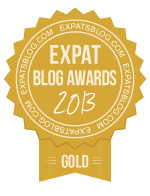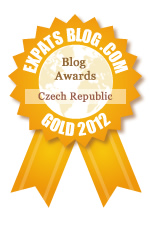At the end of the week I'm off to Scotland for three days. I'm going to stay in Edinburgh which is the capital and the second-largest city. I've got two all-day tours planned to see the Highlands, Loch Lomond, Loch Ness, some castles and a few other sites.
 Scotland is part of the United Kingdom of Great Britain and Northern Ireland. The mainland takes up the northern third of Great Britain and shares a border with England. Scottish territory also includes over 790 islands. Scotland is about the same size as the Czech Republic; just a wee bit smaller than South Carolina. Its population is +5.2 million people. Roughly about the same as Atlanta.
Scotland is part of the United Kingdom of Great Britain and Northern Ireland. The mainland takes up the northern third of Great Britain and shares a border with England. Scottish territory also includes over 790 islands. Scotland is about the same size as the Czech Republic; just a wee bit smaller than South Carolina. Its population is +5.2 million people. Roughly about the same as Atlanta.
 The flag was first raised in 1512 and is one of the oldest flags in the world that is still in use. There has been a long history of fighting between Scotland and England. Although not historically accurate...think of the movie Braveheart. In 1707, Scotland became a part of the Kingdom of Great Britain when it entered in to a political union with England.
The flag was first raised in 1512 and is one of the oldest flags in the world that is still in use. There has been a long history of fighting between Scotland and England. Although not historically accurate...think of the movie Braveheart. In 1707, Scotland became a part of the Kingdom of Great Britain when it entered in to a political union with England.
Scotland does have some autonomy. Its legal and education systems are different from that of England, Wales and Northern Ireland. It has its own parliament and has some amount of control over income taxes. Internationally, the UK prime minister is in charge but internally Scotland is led by the 1st minister. Queen Elizabeth II, as the current UK monarch, is the head of state.
Scotland even has its own money. Well, sort of. Natalie lived in Edinburgh for five years and filled me in on this part. The Bank of England is the UK's central bank and issues banknotes in pound (£) sterling. However, three Scottish clearing banks issue their own banknotes. The banknotes differ depending on which bank printed them. Officially, the Scottish banknotes are valid currency but not legal tender. They are valid everywhere in Scotland and are more or less accepted in other parts of the UK. Banks and post offices will exchange Scottish pounds for British pounds. The coins are the same throughout the United Kingdom.
There are three official languages in Scotland: English, Gaelic and Scots. Scottish accents can be tough to understand. I've been on many a conference call with colleagues from Scotland and it can be quite the challenge at times to figure out what is being said.
There is wide debate in Scotland right now about the possibility of declaring full independence. The SNP (Scottish National Party) holds a majority of seats in parliament right now and plans to hold a referendum in 2014. If Scotland does become an independent country then it will need to decide if it will join the EU. But EU membership requires that all new nations must eventually adopt the Euro which is a touchy subject right now in most of Europe. Here's a video I found on YouTube about the upcoming referendum.
 Scotland is part of the United Kingdom of Great Britain and Northern Ireland. The mainland takes up the northern third of Great Britain and shares a border with England. Scottish territory also includes over 790 islands. Scotland is about the same size as the Czech Republic; just a wee bit smaller than South Carolina. Its population is +5.2 million people. Roughly about the same as Atlanta.
Scotland is part of the United Kingdom of Great Britain and Northern Ireland. The mainland takes up the northern third of Great Britain and shares a border with England. Scottish territory also includes over 790 islands. Scotland is about the same size as the Czech Republic; just a wee bit smaller than South Carolina. Its population is +5.2 million people. Roughly about the same as Atlanta.  The flag was first raised in 1512 and is one of the oldest flags in the world that is still in use. There has been a long history of fighting between Scotland and England. Although not historically accurate...think of the movie Braveheart. In 1707, Scotland became a part of the Kingdom of Great Britain when it entered in to a political union with England.
The flag was first raised in 1512 and is one of the oldest flags in the world that is still in use. There has been a long history of fighting between Scotland and England. Although not historically accurate...think of the movie Braveheart. In 1707, Scotland became a part of the Kingdom of Great Britain when it entered in to a political union with England.Scotland does have some autonomy. Its legal and education systems are different from that of England, Wales and Northern Ireland. It has its own parliament and has some amount of control over income taxes. Internationally, the UK prime minister is in charge but internally Scotland is led by the 1st minister. Queen Elizabeth II, as the current UK monarch, is the head of state.
 |
| English and Scottish £5 notes |
There are three official languages in Scotland: English, Gaelic and Scots. Scottish accents can be tough to understand. I've been on many a conference call with colleagues from Scotland and it can be quite the challenge at times to figure out what is being said.
There is wide debate in Scotland right now about the possibility of declaring full independence. The SNP (Scottish National Party) holds a majority of seats in parliament right now and plans to hold a referendum in 2014. If Scotland does become an independent country then it will need to decide if it will join the EU. But EU membership requires that all new nations must eventually adopt the Euro which is a touchy subject right now in most of Europe. Here's a video I found on YouTube about the upcoming referendum.
©Russia Today



























No comments:
Post a Comment